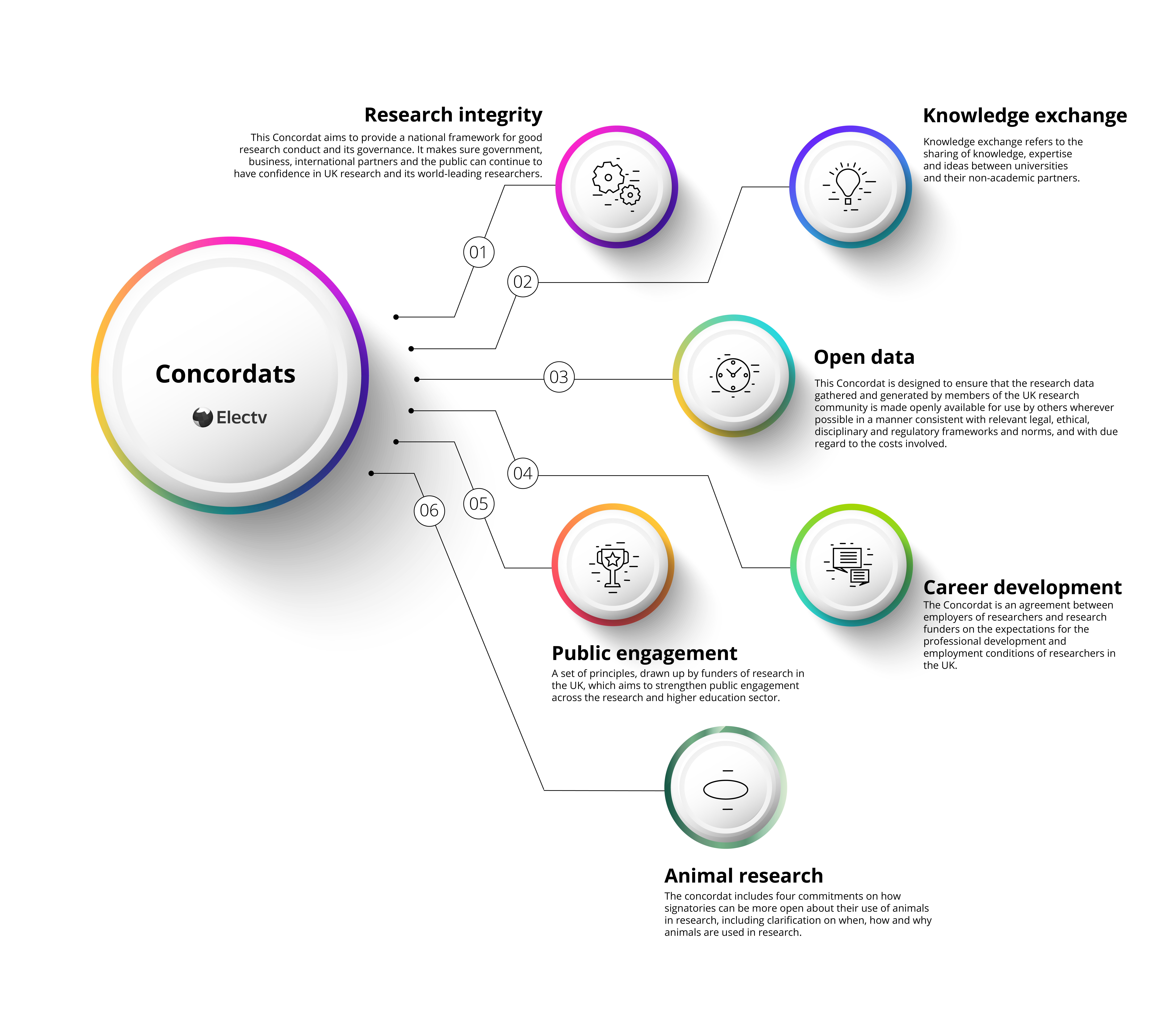“Research in all disciplines….produces knowledge that enhances our culture and civilisation and can be used for the public good. It is aimed at generating knowledge of the natural world and of ourselves, and also at developing that knowledge into useful applications, including driving innovation for sustainable productive economic growth and better public services, improving health, prosperity and the quality of life and protecting the environment.”
– Sir Paul Nurse, President of the Royal Society, 2010-2015 & winner of the Nobel Prize in Physiology or Medicine, 2001
There is no universal set of guidelines on how to do research, but the UK concordats are fairly close and they can be a helpful starting point. As a researcher, you may have read about the concordats or heard one or more of them mentioned in a presentation at your institution, but why are they important and what do you need to know? This article provides a short overview of the concordats: what they are, where to find out more information and why you need to know about them.
What are the concordats?
The concordats for researchers are agreements or statements that outline principles, expectations, and standards to promote and support a positive research environment.
They cover a broad range of topics aimed at providing support to researchers and they have been developed to address various challenges and opportunities. The concordats are supported by UK Research and Innovation (UKRI), a UK government body that funds research via the Department for Science, Innovation and Technology and includes the seven UK research councils.
There are six concordats:
- Concordat to support research integrity
- Concordat for engaging the public with research
- Concordat to support the career development of researchers
- Concordat to support open research data
- Concordat on openness on Animal Research
- Knowledge exchange concordat
(These are also shown in the image above.)
These concordats are typically developed by research funding organisations, universities, and other stakeholders in the research community. They serve as a framework to guide the behaviour and responsibilities of researchers, employers, and funders, with the ultimate goal of fostering a culture of integrity, professionalism, and collaboration in research.
Why do researchers need to know them?
Knowing and implementing the concordats is a shared responsibility across the research community, including researchers of all levels, from undergraduate to professor. The concordats include expectations of researchers with regard to how to conduct, manage and share their work so it is important to familiarise yourself with them if you are undertaking a research project. The concordats are frequently being reviewed and revised, but you can find the current versions via the links above.


Your articles are both educational and enjoyable.
Your content is a valuable resource.